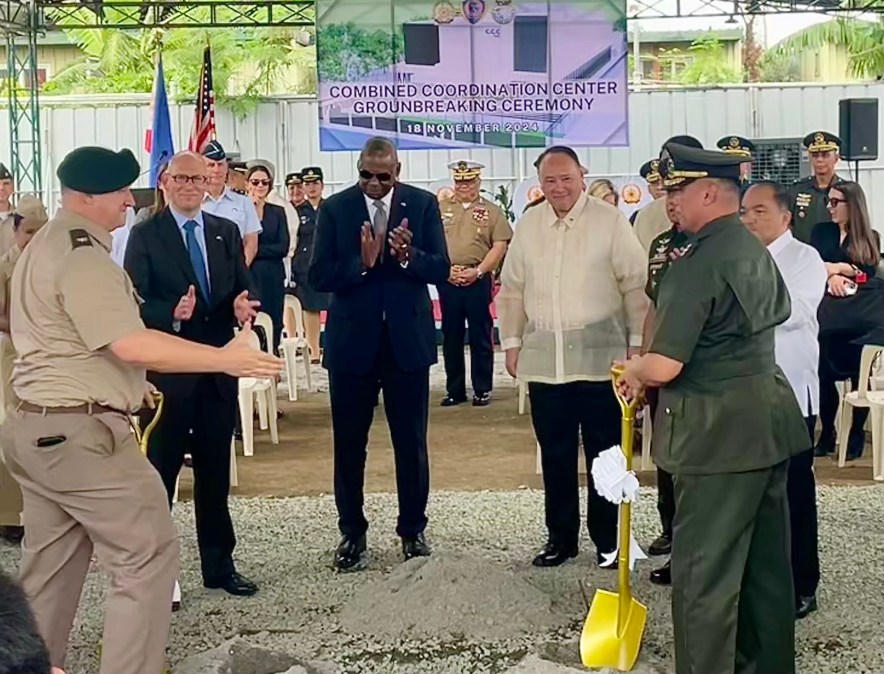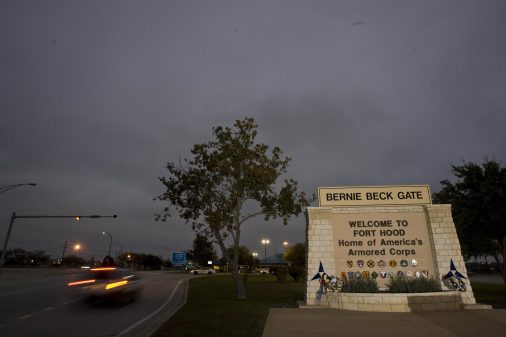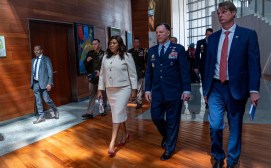US, Philippines expand classified intel-sharing

MANILA, Philippines — Defense chiefs from the U.S. and the Philippines on Monday entered into a new official agreement to enhance sensitive information-sharing and defense technology cooperation between their governments, and broke ground on a new Combined Coordination Center at Camp Aguinaldo in Manila, where their two nations’ military personnel will work side-by-side on regional security operations.
“It’s part of the strategic approach to facing our shared threats that both of our countries have invested a lot of resources, a lot of manpower, and a lot of brain power. And I’m sure it will benefit future generations of both our peoples to come,” Philippines Secretary of National Defense Gilbert Teodoro said.
After the events, a senior defense official and another defense official deeply involved in these efforts shared new details about the new center, or CCC, and the General Security of Military Information Agreement (GSOMIA).
“Signing this agreement will now allow the United States and the Philippines to exchange classified information in a smoother way and in a more frequent way — and that will facilitate deeper cooperation in a whole number of realms,” the senior defense official said, speaking to reporters on condition of anonymity.
Broadly, the GSOMIA is a legal framework negotiated between the American government and a foreign government to establish that each party will properly protect and handle classified military information to an equivalent degree of protection that is required by the organization releasing it.
“Whether it’s with a pilot and an aircraft or to exchange information that we’re seeing through various technologies — manned or unmanned — it will give us a faster way to exchange this information,” the senior defense official told DefenseScoop.
This trip marked Austin’s fourth to the Philippines — the most times that a U.S. secretary of defense has visited the island nation.
During his last visit, the U.S. announced $500 million in foreign military financing for the country.
“We are going to use that $500 million in cooperation with the Philippines to prioritize asymmetric capabilities, cyber capabilities. And across these types of capabilities, there will be an element where being able to engage more smoothly in the classified space will enhance our ability to work effectively,” the senior defense official said.
They confirmed that Pentagon leadership is actively working with the Philippines to map out the initial capabilities they want to purchase.
In Manila, the defense leaders also participated in the groundbreaking for the new Combined Coordination Center.
Officials told reporters that the CCC will be another mechanism via which the nations will be deepening their relationships and coordination, particularly with regard to the South China Sea, across multiple domains.
“We’ve been doing this on an ad-hoc basis for a long time. And I think as we expanded our exercise series, and particularly Exercise Balikatan over the last couple of years, it was clear there was a need to take this out of random conference rooms and into a more dedicated center, especially one that had the right types of information feeds coming in — both classified and unclassified information — that we could see together [and] serve space that we work in,” a defense official said on condition of anonymity.
The militaries are planning to open the new CCC by fall 2025.






